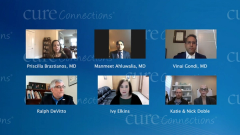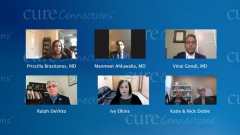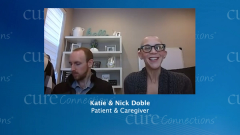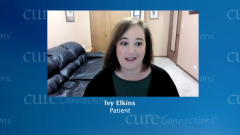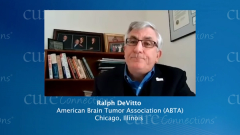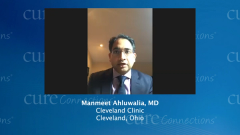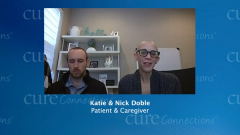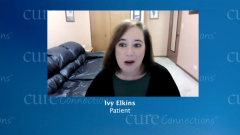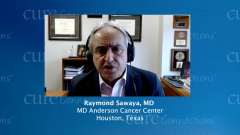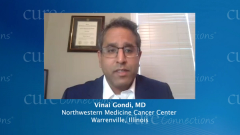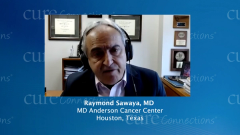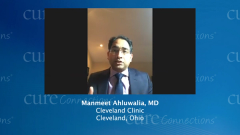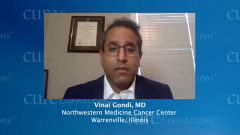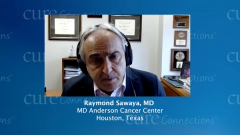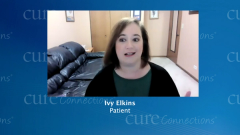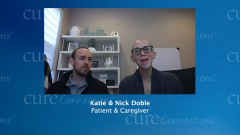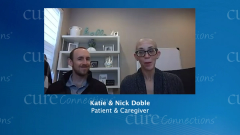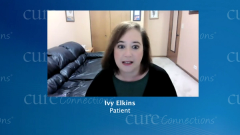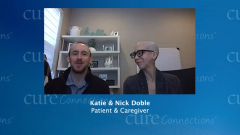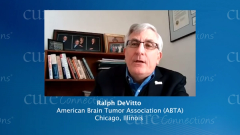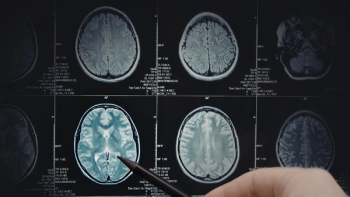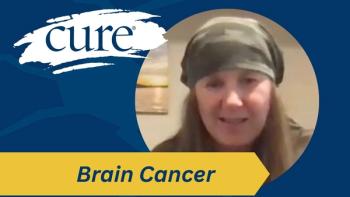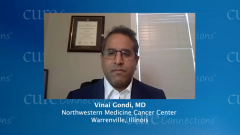
Importance of the American Brain Tumor Association (ABTA)
Episodes in this series

Priscilla Brastianos, MD: That’s actually a very nice segue into the role that the American Brain Tumor Association [ABTA] is playing and the importance of the role because that is one of the important tasks that the ABTA is doing right now. That ties very nicely into the next segment. Ralph, let’s talk a little bit more about the recent initiative of ABTA, the surveys that ABTA has conducted. Tell us a little bit about the methodology, the surveys, and the overall findings.
Ralph DeVitto: Thank you, and Ivy, Katie, and Nick, thank you for sharing your journey. We learn so much because you are willing to be so honest, transparent and vulnerable in settings like these. It means a lot to the entire community, especially to the American Brain Tumor Association, just speaking directly from our organization. First, I want to thank Cure Connections® for the opportunity of the ABTA to be a part of this important educational program. The mission of the ABTA is to improve, to extend and ultimately save the lives of those diagnosed with a brain tumor, and we do it by funding brain tumor research. We especially fund early career investigators and we’re proud of that and the ongoing work that they do in their careers.
We serve brain tumor patients, both primary and secondary. Before we get into the survey results, let me answer, “Why did we do it?” Back in 2017, there was enough known; about 200,000 to 300,000 cases of brain metastases and a lot of emphasis and focus on the about 87,000 people a year that have a primary brain tumor. The initiative was launched in 2017 — and I really want to thank those that helped fund part of this work at least, Accuray, Agios, Bristol Myers Squibb, Brainlab, Genentech, Novocure —and then we worked with other patient advocacy organizations, and I think, Katie, you mentioned one of them, the Melanoma Research Foundation. We worked with LUNGevity, Melanoma Research Foundation, Kidney Cancer Association, Living Beyond Breast Cancer, Fight Colorectal Cancer and the Society for Neuro-Oncology [SNO]. Some were with us from the beginning and some are more recent partners, all playing a vital role.
I became CEO in 2018, and so we continued the focus on this important work of brain metastases because the great news is the oncology community is really extending lives of people diagnosed with breast and lung cancers, or melanoma — that is great news. While the challenge, as you know, is that there’s a greater risk of that primary cancer traveling to the brain. The brain, our complicated, vital organ, it’s our computer. We have got to find a way to work together with other organizations to inform and engage patients and caregivers and the physician community. Just a broad comment is that all physicians are brilliant and dedicated, but there’s a difference if you’re treated, in some cases, in a private setting versus an academic setting. We can touch on that more in a moment.
But I am proud of the survey results. We engaged, Penn, Schoen & Berland [PSB] out of Washington, DC. We had an amazing clinical advisory committee, including yourself and Dr Ahluwalia, thank you, and Joe Barnhardt Sloane, Dan Brad, there’s Mehta and patient advocate Robin Page. All were a very important part of our clinical advisory committee. We did the surveys. We had a clinical advisory committee, and between August and September we surveyed a few hundred patients with cancer. Working through our patient advocacy partners and SNO, we reached out by email and had them do an online survey of approximately 90 questions in each of the cohorts of the patients, caregivers and physicians. We redid our survey tool when we partnered with SNO so that we’d be particularly sensitive to the neuro-oncology community. I will say from what I remember, there were a higher propensity of neuro-oncologists to respond versus the entire spectrum of specialists. We had more men than women respond, but it was a broad spectrum of physicians, and as I mentioned, in private practice, larger practices, academia spread throughout the country. That physician survey happened in June 2019. We were pleased that we had such a wonderful response from patients like yourselves, caregivers, Nick — the role that you play is huge. It would be great if every patient had a caregiver who was so engaged, and quite frankly not all patients have someone as a caregiver that travels with them through their entire journey. We see that, we understand that, and we are here to play a role. As you said, Priscilla, the ABTA does have a plethora of patient services that either we directly deliver, or we refer to other organizations.
Priscilla Brastianos, MD: Ralph, we’re so grateful for the stuff that ABTA does for patients in the community. Can you tell us a little bit more about the survey results? Can you give us a sneak preview before they’re published?
Ralph DeVitto: We can. In fact, thank you for setting it up. We are about to publish, we hope, in Neuro-Oncology, a peer-reviewed journal, early next year. We have a phenomenal team. It’s amazing that so many of you have been willing to step up and give hours of your time to this effort. A little preview. One of the things that we learned, and it was touched on earlier, is that depending upon where your physician practices, some of the treatment options that you get are going to vary.
Let me just point out one and that’s in the area of neuroradio-oncology. We have found in our survey results that those who have brain metastases, if they are being treated in a private setting, they are more than likely to get whole-brain radiation as a recommendation, where if they go to an academic or larger setting, stereotactic radiosurgery [SRS], are more than likely to be offered. Dr Gondi can speak to the significant advances and the ability to treat numbers of regions and different locations and complexities that are available. Often, as our survey found, that can be offered to a patient when they’re treated at an academic setting or a setting where there are more resources, a larger team, and, quite frankly, more options.
One other thing that I just want to point out, that was touched on a little bit, that will come out more in our manuscript; physicians believe that they’re sharing important information about brain metastases, and they are, but it’s more of an overview. The patient experience, according to our survey, is they don’t get what their risk is for their type of cancer to spread to the brain. Patients and caregivers want physicians to be earlier in explaining the risk and then explaining the treatment options. I love the fact that Ivy and Katie were so open to clinical trials because that is another thing that we need to be advocates for, and that is for every patient to be given the option to explore clinical trials. Now, there are barriers. If you have brain metastases, unfortunately too many of you are excluded from trials, and we have to find ways to address that issue, and I assure you we will do that.
Just one final thing, Priscilla. In the survey findings, the role of the federal government was uniformly identified by physicians, caregivers and patients as needing to play the leading role in funding more brain tumor research in this area and really making sure that they’re a partner in breaking down the barriers for patients to enroll in clinical trials.
Priscilla Brastianos, MD: I think we can all agree here that it would be great if there was more funding available for patients, research, and clinical trials to help further the field.
Transcript Edited for Clarity

